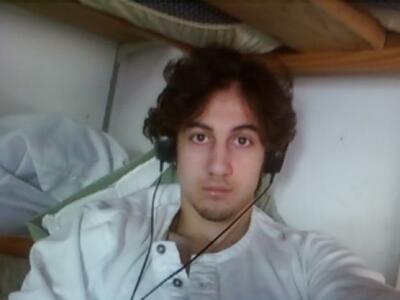Boston Marathon Bombing Trial 2015 News: Tsarnaev Faces Death Penalty as Defense Rests Its Case

The defense panel for accused Boston Marathon bombing suspect Dzhokhar Tsarnaev rested its case on Tuesday after presenting four witnesses.
Tsarnaev is facing 30 charges with the possibility of death penalty in connection with the April 15, 2013 attack that killed three people and injured 264 people.
The prosecution, on the other hand, presented 92 witnesses in Tsarnaev's trial.
The defense and prosecution will meet on Monday for their closing statements before the jury begins deliberations.
If Tsarnaev is found guilty, the trial will go to the second phase where jurors will decide on whether Tsarnaev should face the death penalty or life imprisonment.
While Tsarnaev already admitted committing the crimes, he "left his formal 'not guilty' plea in place, meaning a jury must first convict him before taking up the question of whether to sentence him to death," Reuters reported.
His lawyers were trying to point out that his brother, 26-year-old Tamerlan Tsarnaev, was the mastermind in the bombing.
Tamerlan was the one who searched for radio transmitters and guns before the attack and that a laptop owned by Dzhokhar did not show such searches.
Questioned by prosecutors, digital forensics expert Mike Spencer revealed that Dzhokhar's laptop showed searches for "the call of jihad" four days before the attack.
He also said it was impossible to tell who between the brothers performed each Internet search and Dzhokhar sometimes logged on to Tamerlan's computer.
Tamerlan died on April 19, 2013 when Dzhokhar accidentally ran him over with a hijacked SUV after a gunfight with the police.
F.B.I. fingerprint examiner testified that she found Tamerlan's fingerprints on rolls of duct tape, caulk gun and glass jar with small nails used in making the bombs used in the Boston attack.
While Dzhokhar's fingerprints were not found, Graff explained said it is not unusual to find few fingerprints on a bomb's remains.
"Prints are usually left in the sweat or the oil that covers your fingers. They're very fragile," she said. "Due to the extreme temperatures and force in an explosion, it is not unusual to not find fingerprints on items."
 Christians don't have to affirm transgenderism, but they can’t express that view at work: tribunal
Christians don't have to affirm transgenderism, but they can’t express that view at work: tribunal Archaeology discovery: Medieval Christian prayer beads found on Holy Island
Archaeology discovery: Medieval Christian prayer beads found on Holy Island Presbyterian Church in America votes to leave National Association of Evangelicals
Presbyterian Church in America votes to leave National Association of Evangelicals Over 50 killed in 'vile and satanic' attack at Nigerian church on Pentecost Sunday
Over 50 killed in 'vile and satanic' attack at Nigerian church on Pentecost Sunday Ukrainian Orthodox Church severs ties with Moscow over Patriarch Kirill's support for Putin's war
Ukrainian Orthodox Church severs ties with Moscow over Patriarch Kirill's support for Putin's war Islamic State kills 20 Nigerian Christians as revenge for US airstrike
Islamic State kills 20 Nigerian Christians as revenge for US airstrike Man who served 33 years in prison for murder leads inmates to Christ
Man who served 33 years in prison for murder leads inmates to Christ


 Nigerian student beaten to death, body burned over ‘blasphemous’ WhatsApp message
Nigerian student beaten to death, body burned over ‘blasphemous’ WhatsApp message 'A new low': World reacts after Hong Kong arrests 90-year-old Cardinal Joseph Zen
'A new low': World reacts after Hong Kong arrests 90-year-old Cardinal Joseph Zen Iran sentences Christian man to 10 years in prison for hosting house church worship gathering
Iran sentences Christian man to 10 years in prison for hosting house church worship gathering French Guyana: Pastor shot dead, church set on fire after meeting delegation of Evangelicals
French Guyana: Pastor shot dead, church set on fire after meeting delegation of Evangelicals ‘Talking Jesus’ report finds only 6% of UK adults identify as practicing Christians
‘Talking Jesus’ report finds only 6% of UK adults identify as practicing Christians Mission Eurasia ministry center blown up in Ukraine, hundreds of Bibles destroyed: 'God will provide'
Mission Eurasia ministry center blown up in Ukraine, hundreds of Bibles destroyed: 'God will provide' Church holds service for first time after ISIS desecrated it 8 years ago
Church holds service for first time after ISIS desecrated it 8 years ago Burger King apologizes for 'offensive campaign' using Jesus' words at the Last Supper
Burger King apologizes for 'offensive campaign' using Jesus' words at the Last Supper Uganda: Muslims abduct teacher, burn him inside mosque for praying in Christ’s name
Uganda: Muslims abduct teacher, burn him inside mosque for praying in Christ’s name